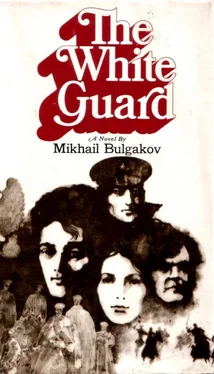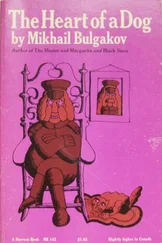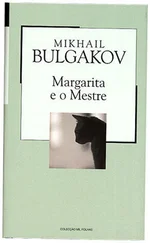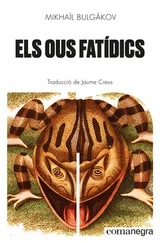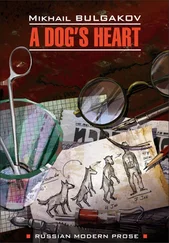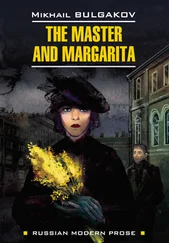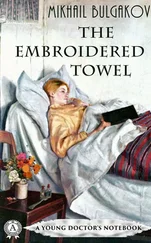MIKHAIL BULGAKOV - THE WHITE GUARD
Здесь есть возможность читать онлайн «MIKHAIL BULGAKOV - THE WHITE GUARD» весь текст электронной книги совершенно бесплатно (целиком полную версию без сокращений). В некоторых случаях можно слушать аудио, скачать через торрент в формате fb2 и присутствует краткое содержание. Жанр: Русская классическая проза, на английском языке. Описание произведения, (предисловие) а так же отзывы посетителей доступны на портале библиотеки ЛибКат.
- Название:THE WHITE GUARD
- Автор:
- Жанр:
- Год:неизвестен
- ISBN:нет данных
- Рейтинг книги:3 / 5. Голосов: 1
-
Избранное:Добавить в избранное
- Отзывы:
-
Ваша оценка:
- 60
- 1
- 2
- 3
- 4
- 5
THE WHITE GUARD: краткое содержание, описание и аннотация
Предлагаем к чтению аннотацию, описание, краткое содержание или предисловие (зависит от того, что написал сам автор книги «THE WHITE GUARD»). Если вы не нашли необходимую информацию о книге — напишите в комментариях, мы постараемся отыскать её.
Copyright © 1971 by McGraw-Hill Book Company.
Library of Congress Catalogue Card Number: 70-140252 08844
Printed in Great Britain
THE WHITE GUARD — читать онлайн бесплатно полную книгу (весь текст) целиком
Ниже представлен текст книги, разбитый по страницам. Система сохранения места последней прочитанной страницы, позволяет с удобством читать онлайн бесплатно книгу «THE WHITE GUARD», без необходимости каждый раз заново искать на чём Вы остановились. Поставьте закладку, и сможете в любой момент перейти на страницу, на которой закончили чтение.
Интервал:
Закладка:
But the bloodstained man did not reply to the cossack sergeant. Then the sergeant ran ahead, and the two men jumped aside to escape the flailing rod with its heavy, glittering brass tip. Without calculating the force of his blow the sergeant brought down the ramrod like a thunderbolt on to the man's head. Something cracked inside it and the man in black did not even groan. Thrusting up his arm, head lolling, he slumped from his knees to one side and with a wide sweep of his other arm he flung it out as though he wanted to scoop up more of the trampled and dung-stained snow. His fingers curled hook-wise and clawed at the dirty snow. Then the
figure lying in the dark puddle twitched convulsively a few times and lay still.
An electric lamp hissed above the prone body, the anxious shadows of the two pig-tailed haidamaks fluttered around him, and above the lamp was a black sky and blinking stars.
As the man slumped to the ground, the star that was the planet Mars suddenly exploded in the frozen firmament above the City, scattered fire and gave a deafening burst.
After the star the distant spaces across the Dnieper, the distance leading to Moscow, echoed to a long, low boom. And immediately a second star plopped in the sky, though lower, just above the snow-covered roofs.
At that moment the Blue Division of the haidamaks marched over the bridge, into the City, through the City and out of it for ever.
Behind the Blue Division, the frost-bitten horses of Kozyr-Leshko's cavalry regiment crossed the bridge at a wolfish lope followed by a rumbling, bouncing field-kitchen . . . then it all disappeared as if it had never been. All that remained was the stiffening corpse of a Jew on the approach to the bridge, some trampled hay and horse-dung.
And the corpse was the only evidence that Petlyura was not a myth but had really existed . . . But why had he existed? Nobody can say. Will anybody redeem the blood that he shed?
No. No one.
The snow would just melt, the green Ukrainian grass would grow again and weave its carpet over the earth . . . The gorgeous sunrises would come again . . . The air would shimmer with heat above the fields and no more traces of blood would remain. Blood is cheap on those red fields and no one would redeem it.
No one.
#
That evening they had stoked up the Dutch stove until it glowed, and it was still giving out heat late into the night. The scribbled inscriptions had been cleaned from the tiles depicting Peter
the Great as 'The Shipwright of Saardam', and only one had been
left:
'Lena . . . I've bought tickets for Aid . . .'
The house on St Alexei's Hill, covered with snow like a White general's fur hat, slept on in a long, warm sleep that dozed away behind the blinds, stirred in the shadows.
Outside, there flourished the freezing, all-conquering night, as it glided soundlessly over the earth. The stars glittered, contracting and broadening again, and especially high in the sky was Mars - red, five-pointed.
Many were the dreams dreamed in the warm rooms of the house.
Alexei slept in his bedroom, and a dream hovered over him like a blurred picture. The hallway of the school swayed in front of him and the Emperor Alexander I had come down from his picture to burn the list of names of the Mortar Regiment in the stove . . . Julia Reiss passed in front of him and laughed, other shadows leaped out at him shouting 'Kill him!'
Soundlessly they fired their rifles at him and Alexei tried to run away from them, but his feet stuck to the sidewalk of Malo-Provalnaya Street and Alexei died in his dream. He awoke with a groan, heard Myshlaevsky snoring from the drawing-room, the quiet whistle of breathing from Karas and Lariosik in the library. He wiped the sweat from his forehead, remembered where he was, then smiled weakly and stretched out for his watch.
It was three o'clock.
'They must have gone by now . . . Petlyura . . . Won't see him again.'
And he went to sleep again.
#
The night flowed on. Morning was already not far away and the house slept, buried under its shaggy cap of snow. The tormented Vasilisa lay asleep between cold sheets, warming them with his skinny body, and he dreamed a stupid, topsy-turvy dream.He dreamed that there had been no revolution, the whole thing was pure nonsense. In his dream a dubious, insecure kind of happiness
hovered over Vasilisa. It was summer and Vasilisa had just bought a garden. Instantly, fruit and vegetables sprang out of the ground. The beds were covered with gay little tendrils and bulbous green cucumbers were peeping through them. Vasilisa stood there in a pair of canvas trousers looking at the cheerful face of the rising sun, and scratching his stomach . . .
Then Vasilisa dreamed of the stolen globe-shaped clock. He wanted to feel regret at the loss of the clock, but the sun shone so sweetly that he could summon up no regret.
It was at this happy moment that a crowd of chubby pink piglets invaded the garden and began to root up the beds with their little round snouts. The earth flew up in fountains. Vasilisa picked up a stick and started to chase the piglets away, but there turned out to be something frightening about these pigs - they had sharp fangs. They began to jump and snap at Vasilisa, leaping three feet into the air as they did so because they had springs inside them. Vasilisa moaned in his sleep. A large black fence-post fell on the pigs, they vanished into the earth and Vasilisa woke up to see his damp, dark bedroom floating in front of him.
#
The night flowed on. The dream passed on over the City, flapping like a vague, white night-bird, flew past the cross held aloft by St Vladimir, crossed the Dnieper, into the thickest black of the night. It sped along the iron track to Darnitsa station and stopped above it. There, on track No. 3, stood an armored train. Its sides were fully armored right down to the wheels with gray steel plates. The locomotive rose up like a black, multi-faceted mass of metal, red-hot cinders dropping out of its belly on to the rails, so that from the side it looked as if the womb of the locomotive was stuffed with glowing coals. As it hissed gently and malevolently, something was oozing through a chink in its side armor, while its blunt snout glowered silently toward the forest that lay between it and the Dnieper. On the last flat-car the bluish-black muzzle of a heavy caliber gun, gagged with a muzzle-cover, pointed straight towards the City eight miles away.
The station was gripped in cold and darkness, pierced only by the light from dim, flickering yellow lamps. Although it was almost dawn there was constant movement and activity on its platforms. Three windows shone brightly in the low, single-storey yellow hut that housed the telegraph, and the ceaseless chatter of three morse-keys could be heard through the panes. Regardless of the burning frost men ran up and down the platform, figures in knee-length sheepskin jerkins, army greatcoats and black reefer jackets. On the next track alongside the armored train and stretching out far behind it, stood the heated cars of a troop-train, a constant unsleeping bustle as men called out, doors opened and slammed shut again.
Beside the armored train, level with the locomotive and the steel sides of the first armored car, there marched up and down like a pendulum a man in a long greatcoat, torn felt boots and a sharp-pointed hood. He cradled his rifle in his arms as tenderly as an exhausted mother holding her baby, and beside him, under the meager light of a station lamp, there marched over the snow the silent foreshortened black shadow of the man and his bayonet. The man was very tired and suffering from the savage, inhuman cold. In vain he thrust the wooden fingers of his cold, blue hands into his ragged sleeves to seek refuge and warmth. From the ragged, frozen black mouth of his cowl, fringed with white hoar frost, his eyes stared out from under frost-laden eyelashes. The eyes were blue, heavy with sleeplessness and pain.
Читать дальшеИнтервал:
Закладка:
Похожие книги на «THE WHITE GUARD»
Представляем Вашему вниманию похожие книги на «THE WHITE GUARD» списком для выбора. Мы отобрали схожую по названию и смыслу литературу в надежде предоставить читателям больше вариантов отыскать новые, интересные, ещё непрочитанные произведения.
Обсуждение, отзывы о книге «THE WHITE GUARD» и просто собственные мнения читателей. Оставьте ваши комментарии, напишите, что Вы думаете о произведении, его смысле или главных героях. Укажите что конкретно понравилось, а что нет, и почему Вы так считаете.
